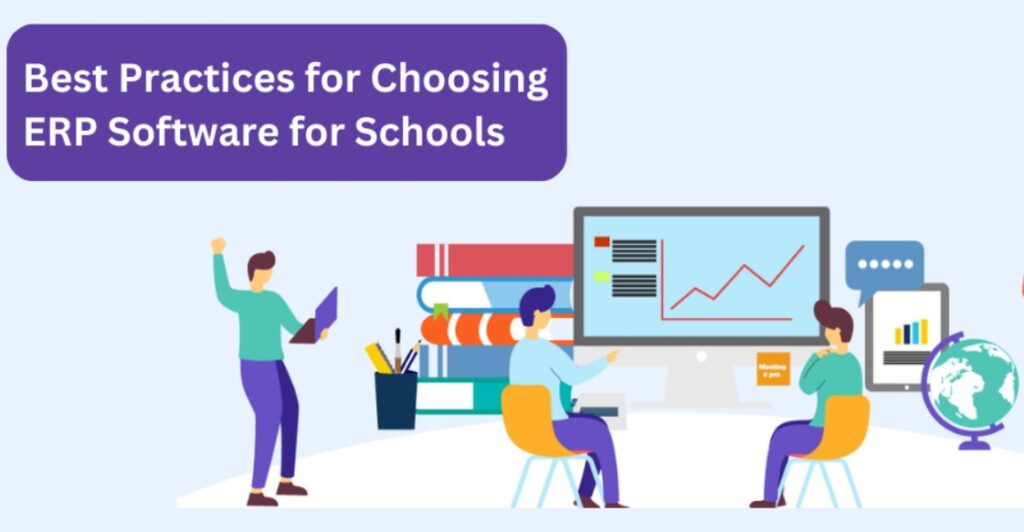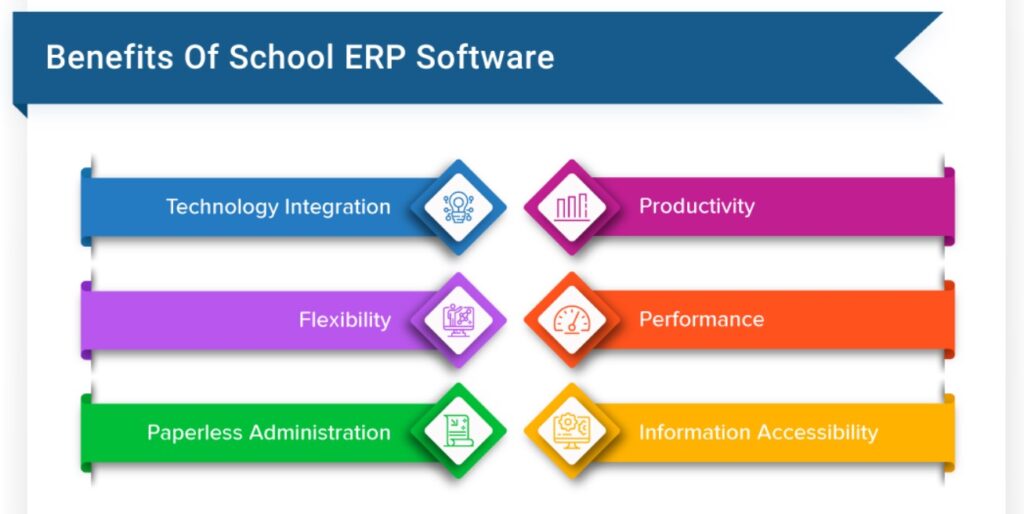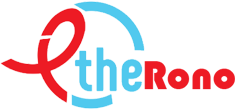In today’s rapidly evolving educational landscape, institutions are increasingly turning to Enterprise Resource Planning (ERP) software to streamline their operations, enhance efficiency, and improve the overall educational experience. Education ERP systems integrate various aspects of academic and administrative functions, providing a centralized platform for managing student information, finances, human resources, and more.
As the demand for comprehensive education management solutions continues to grow, numerous software providers have entered the market, each offering unique features and capabilities. This article aims to explore some of the best Education ERP software providers available, highlighting their strengths and key offerings to help educational institutions make informed decisions when selecting a system that best fits their needs.
Read Also: 7 Best ERP Software for Textile Business in 2024

1. Blackbaud Education Management Solutions
Blackbaud is a well-established name in the education technology sector, offering a comprehensive suite of ERP solutions tailored for K-12 schools, higher education institutions, and educational foundations. Their education management platform includes modules for student information systems, admissions and enrollment, financial management, fundraising, and alumni relations.
Key features of Blackbaud’s education ERP include:
- Seamless integration across all modules
- Cloud-based architecture for easy access and scalability
- Advanced analytics and reporting capabilities
- Mobile-friendly interfaces for students, parents, and staff
Blackbaud’s solutions are particularly popular among private schools and universities due to their robust fundraising and donor management tools, which are crucial for institutions relying on philanthropic support.
2. Oracle Student Cloud
Oracle, a global leader in enterprise software, offers Oracle Student Cloud as part of its comprehensive education ERP suite. This cloud-based solution is designed to support the entire student lifecycle, from recruitment and admissions to graduation and alumni engagement.
Notable aspects of Oracle Student Cloud include:
- AI-powered student success predictions and interventions
- Flexible curriculum management tools
- Advanced financial aid processing
- Integrated career services and internship management
Oracle’s platform stands out for its scalability and ability to handle complex processes, making it suitable for large universities and multi-campus institutions. The system’s emphasis on data analytics and AI-driven insights also positions it as a forward-thinking solution in the education technology space.
3. Ellucian Banner
Ellucian Banner is a widely adopted ERP system in higher education, serving over 2,700 institutions worldwide. Known for its comprehensive functionality and flexibility, Banner offers modules covering all aspects of campus management, including student information, finance, human resources, and advancement.
Ellucian Banner’s strengths include:
- Extensive customization options to meet specific institutional needs
- Strong integration capabilities with third-party applications
- Robust self-service portals for students and faculty
- Comprehensive regulatory compliance features
Ellucian’s long-standing presence in the education sector and its focus on higher education make it a trusted choice for colleges and universities seeking a proven, feature-rich ERP solution.
4. PowerSchool
PowerSchool has emerged as a leading provider of K-12 education technology solutions, offering a unified platform that covers all aspects of school district operations. Their ERP system integrates student information, assessment, special education, finance, and human resources management into a single, cohesive solution.
Key benefits of PowerSchool’s ERP include:
- User-friendly interfaces designed for educators and administrators
- Real-time data synchronization across all modules
- Powerful analytics tools for data-driven decision-making
- Extensive library of pre-built integrations with popular edtech tools
PowerSchool’s focus on the K-12 sector has allowed them to develop features specifically tailored to the needs of primary and secondary education institutions, making their solution particularly attractive to school districts looking for a comprehensive, all-in-one platform.
5. Workday Student
Workday, known for its innovative approach to enterprise software, has extended its expertise to the education sector with Workday Student. This cloud-native solution is designed to support the entire student lifecycle, from recruitment to alumni management, with a focus on delivering a modern, mobile-first user experience.
Standout features of Workday Student include:
- Unified system for academic and administrative processes
- Machine learning-powered student engagement tools
- Flexible academic structure to support diverse program types
- Built-in analytics and reporting capabilities
Workday’s reputation for user-friendly interfaces and continuous innovation makes their education ERP an attractive option for institutions looking to modernize their technology stack and improve user adoption rates among students and staff.
6. Jenzabar One
Jenzabar One is a comprehensive ERP solution specifically designed for higher education institutions. With a focus on flexibility and ease of use, Jenzabar offers modules for student information management, finance, human resources, advancement, and more.
Notable aspects of Jenzabar One include:
- Mobile-first design for anytime, anywhere access
- Personalized dashboards for different user roles
- Integrated CRM for recruitment and retention
- AI-powered chatbots for student support
Jenzabar’s dedication to serving higher education institutions of all sizes, from small private colleges to large public universities, has helped them develop a solution that can be tailored to meet diverse institutional needs.
7. Anthology (formerly Campus Management)
Anthology, formed from the merger of Campus Management, Campus Labs, and iModules, offers a comprehensive suite of education technology solutions. Their ERP system, which includes the well-known CampusNexus platform, provides a full range of capabilities for student management, finance, human resources, and advancement.
Key features of Anthology’s ERP solutions include:
- Cloud-native architecture for enhanced scalability and performance
- Embedded analytics and business intelligence tools
- Configurable workflows to match institutional processes
- Strong support for non-traditional and continuing education programs
Anthology’s combined expertise from multiple education technology leaders positions them as a strong contender in the education ERP market, particularly for institutions seeking a balance between comprehensive functionality and innovative features.
8. Unit4 Student Management
Unit4 Student Management is a cloud-based ERP solution designed to support the entire student journey, from initial contact through to graduation and beyond. With a focus on flexibility and user experience, Unit4’s platform is well-suited for institutions looking to modernize their administrative processes.
Standout aspects of Unit4 Student Management include:
- Intuitive, consumer-grade user interfaces
- Flexible academic model to support diverse program structures
- Built-in automation tools for administrative tasks
- Strong support for international and multi-campus institutions
Unit4’s emphasis on delivering a modern, user-friendly experience makes their solution particularly appealing to institutions aiming to improve student and staff satisfaction with their administrative systems.

In conclusion, the education ERP software market offers a diverse range of solutions to meet the varied needs of educational institutions. From comprehensive platforms designed for large universities to specialized systems for K-12 districts, there are options available for every type and size of institution.
When considering an education ERP provider, it’s crucial for institutions to carefully evaluate their specific needs, long-term goals, and existing technology infrastructure. Factors such as scalability, user experience, integration capabilities, and vendor support should all play a role in the decision-making process. By choosing the right ERP solution, educational institutions can streamline their operations, enhance data-driven decision-making, and ultimately provide a better experience for students, faculty, and staff in an increasingly digital educational landscape.

